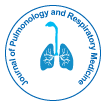हमारा समूह 1000 से अधिक वैज्ञानिक सोसायटी के सहयोग से हर साल संयुक्त राज्य अमेरिका, यूरोप और एशिया में 3000+ वैश्विक सम्मेलन श्रृंखला कार्यक्रम आयोजित करता है और 700+ ओपन एक्सेस जर्नल प्रकाशित करता है जिसमें 50000 से अधिक प्रतिष्ठित व्यक्तित्व, प्रतिष्ठित वैज्ञानिक संपादकीय बोर्ड के सदस्यों के रूप में शामिल होते हैं।
ओपन एक्सेस जर्नल्स को अधिक पाठक और उद्धरण मिल रहे हैं
700 जर्नल और 15,000,000 पाठक प्रत्येक जर्नल को 25,000+ पाठक मिल रहे हैं
में अनुक्रमित
- आईसीएमजेई
उपयोगी कड़ियां
एक्सेस जर्नल खोलें
इस पृष्ठ को साझा करें
अमूर्त
Portuguese Family Drug Education's Respiratory Drug Class: A Delphi Research
Abdullah Al-Shamrani
Background: Respiratory conditions (RD) constitute a significant part of the workload of family croakers. There's no agreement on what family croakers should know in this area but established styles for achieving agreement may help to overcome this.
Objects: The purpose of the study was to gain a public agreement on the needed knowledge and chops in respiratory drug for family drug trainees after vocational training.
Methods: A Delphi study was conducted via e-mail with a different panel of experts. We developed a Learning Curriculum Framework (LCF) with 399 particulars acclimated from the Royal Australasian College of Physicians — Respiratory Medicine Advanced Training Curriculum. The LCF was submitted to the experts in two rounds for agreement. Consensus was considered for particulars that had an agreement of 80 in the groups above 4 on a scale of significance that ranged from 1(not important) to 5(veritably important).
Results: Consensus was attained for 159 particulars (38.8). These included structure and function of the respiratory tract(0.6), presenting problems(21.4), opinion(7.5), interventions and forestalment(11.3), COPDemphysema( 12.6), tumours(3.1), infections(10.7), tuberculosis(5.7), HIV(1.3), thromboembolic complaint(2.5), pleural- pulmonary complaint(3.1), gestation(0.6) and sleep diseases(3.8). Particulars on iatrogenic conditions and respiratory exploration didn't reach agreement.
Conclusions: Consensus on the respiratory drug class may contribute to farther development of the vocational training class in Portugal. This approach may help preceptors in other countries in Europe to develop classes for respiratory drug and other areas of general practice.
विषयानुसार पत्रिकाएँ
- अंक शास्त्र
- अभियांत्रिकी
- आनुवंशिकी एवं आण्विक जीवविज्ञान
- इम्यूनोलॉजी और माइक्रोबायोलॉजी
- औषधि विज्ञान
- कंप्यूटर विज्ञान
- कृषि और जलकृषि
- केमिकल इंजीनियरिंग
- चिकित्सीय विज्ञान
- जीव रसायन
- नर्सिंग एवं स्वास्थ्य देखभाल
- नैदानिक विज्ञान
- नैनो
- पदार्थ विज्ञान
- पर्यावरण विज्ञान
- पशु चिकित्सा विज्ञान
- पादप विज्ञान
- बायोमेडिकल साइंसेज
- भूविज्ञान और पृथ्वी विज्ञान
- भोजन एवं पोषण
- भौतिक विज्ञान
- रसायन विज्ञान
- व्यवसाय प्रबंधन
- सामाजिक एवं राजनीतिक विज्ञान
- सामान्य विज्ञान
- सूचना विज्ञान
क्लिनिकल एवं मेडिकल जर्नल
- आणविक जीव विज्ञान
- आनुवंशिकी
- इम्मुनोलोगि
- एनेस्थिसियोलॉजी
- कार्डियलजी
- कीटाणु-विज्ञान
- कैंसर विज्ञान
- गैस्ट्रोएंटरोलॉजी
- ज़हरज्ञान
- तंत्रिका-विज्ञान
- त्वचा विज्ञान
- दंत चिकित्सा
- दवा
- नर्सिंग
- नेत्र विज्ञान
- नेफ्रोलॉजी
- नैदानिक अनुसंधान
- पल्मोनोलॉजी
- प्रजनन चिकित्सा
- बच्चों की दवा करने की विद्या
- भौतिक चिकित्सा एवं पुनर्वास
- मधुमेह और एंडोक्राइनोलॉजी
- मनश्चिकित्सा
- रुधिर
- रेडियोलोजी
- शल्य चिकित्सा
- संक्रामक रोग
- स्वास्थ्य देखभाल
- हड्डी रोग

 English
English  Spanish
Spanish  Chinese
Chinese  Russian
Russian  German
German  French
French  Japanese
Japanese  Portuguese
Portuguese  Telugu
Telugu